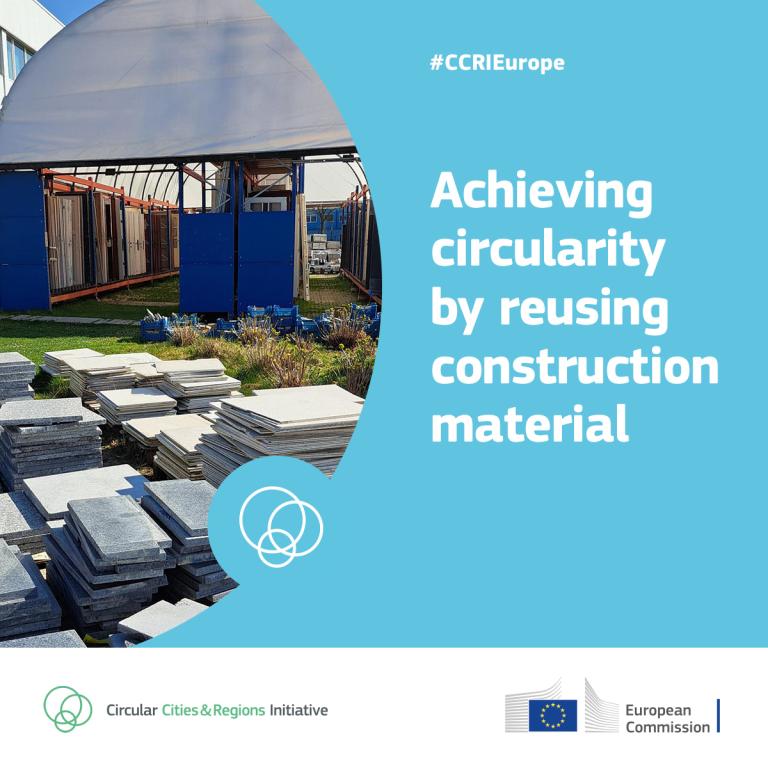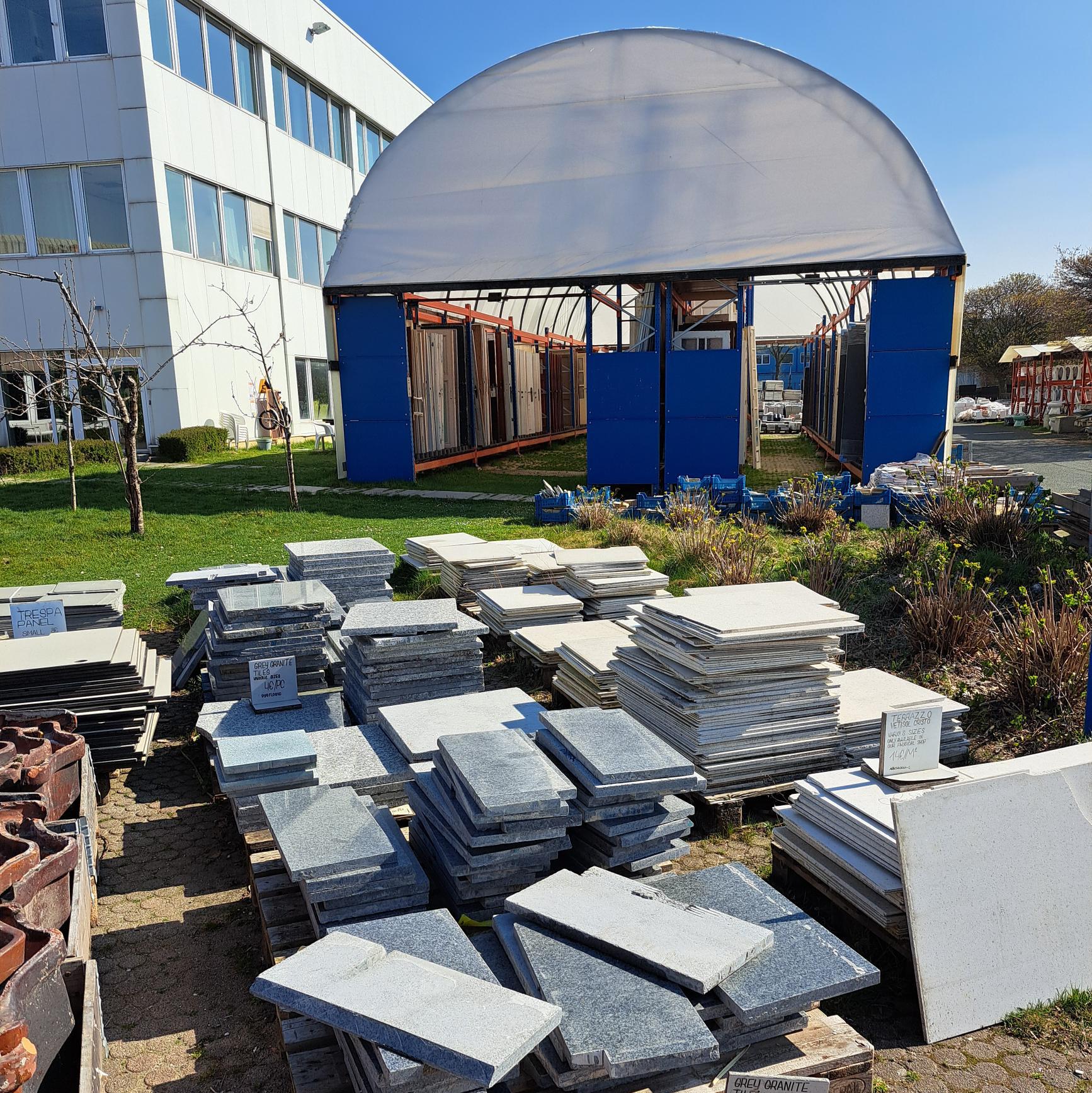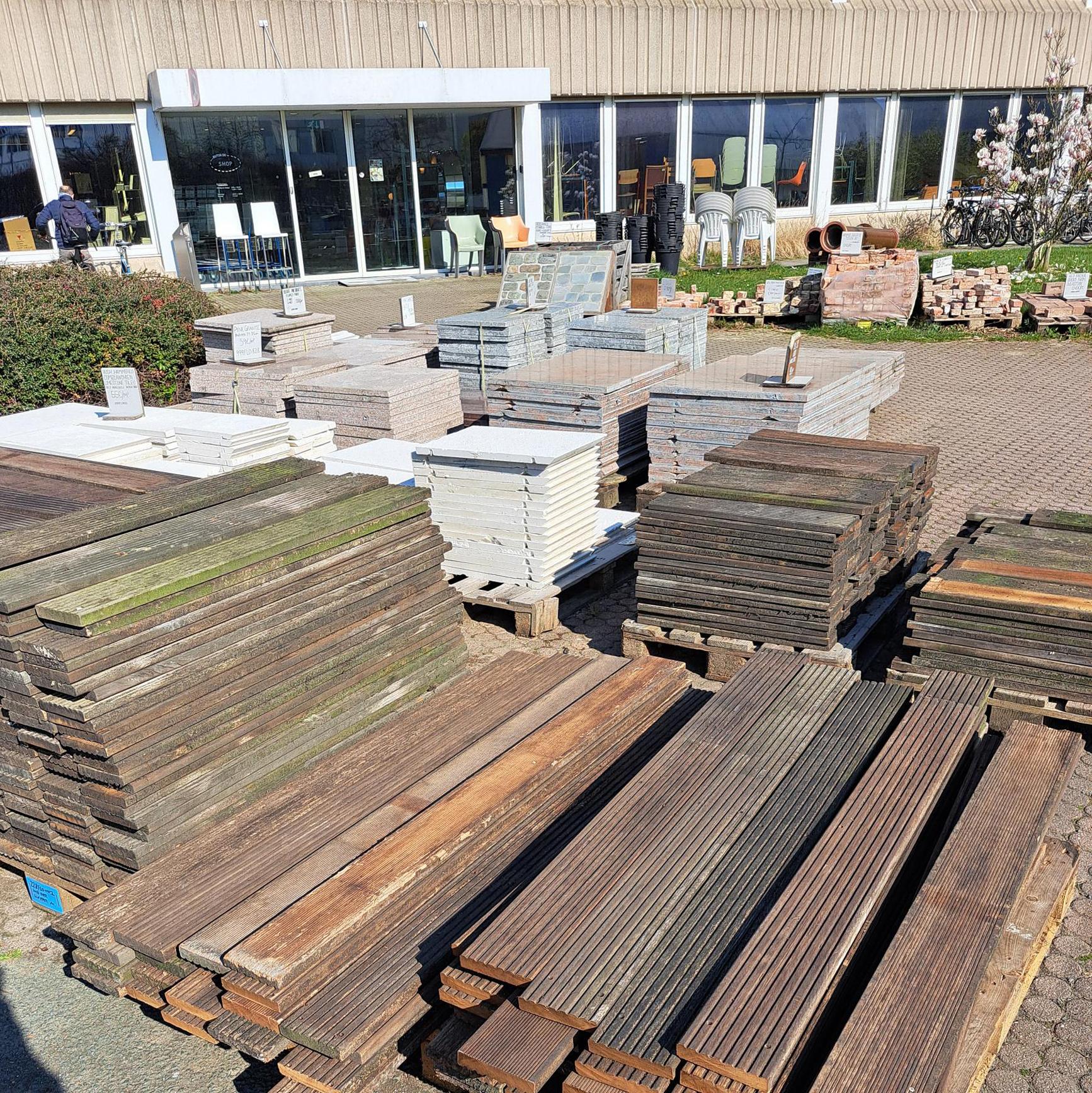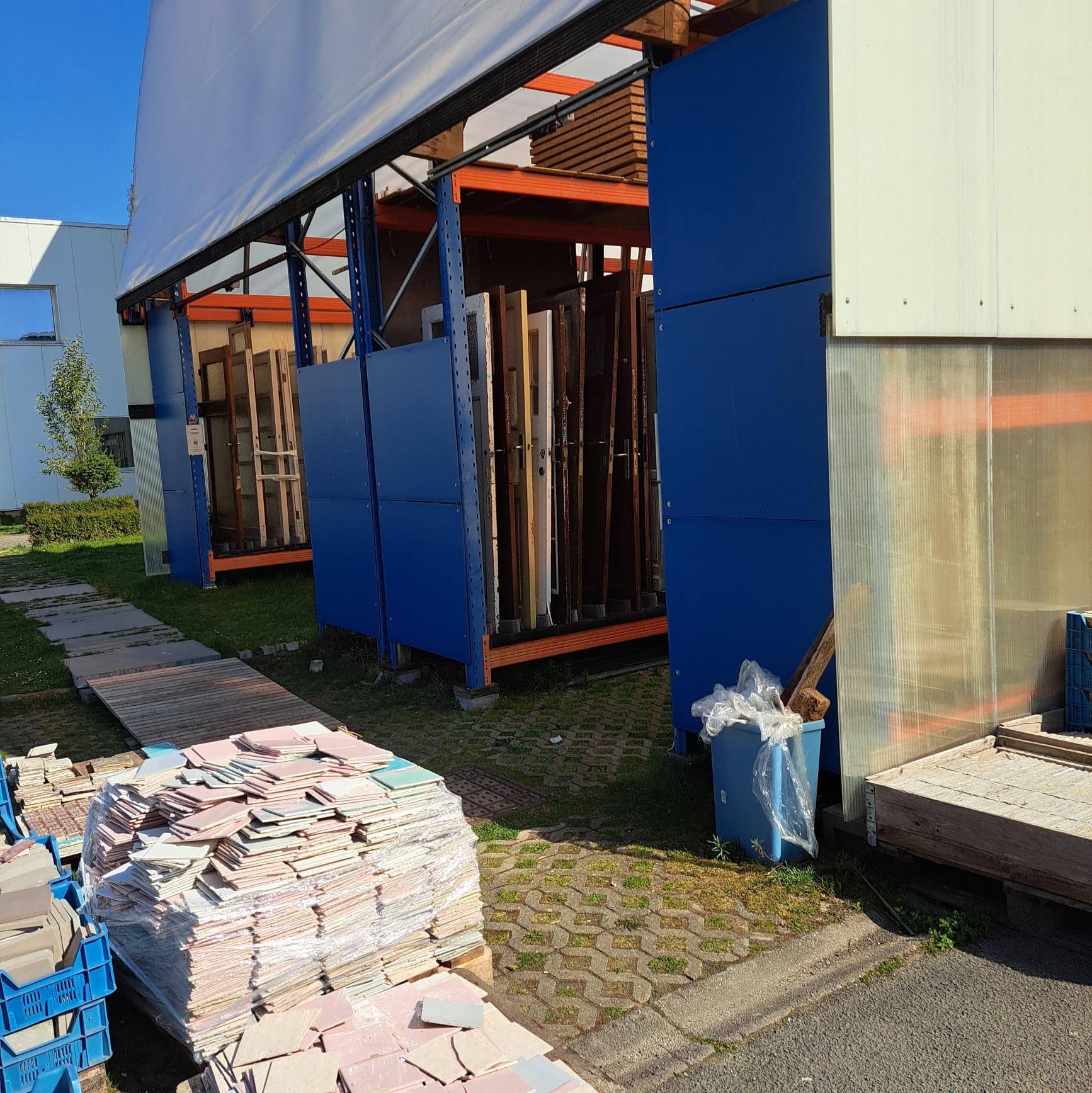CCRI Pilot Flanders visits Rotor to learn about construction material reuse
Published on 16.06.2025
On 25 March, representatives from CCRI Pilot Flanders visited Rotor, a pioneering marketplace for salvaged building materials located in Brussels. The visit was organised in collaboration with partners from the Interreg Europe KARMA project, which brings together seven European regions to enhance local climate policies through circular construction initiatives.

What is Rotor?
Rotor is a Brussels-based cooperative design practice known for its critical research on material flows in the built environment and its Rotor DC marketplace, focused on reclaiming and reselling building components in the local circular construction ecosystem.

Flanders’ visit to Rotor
The site visit featured a tour of the Rotor marketplace and presentations on related European initiatives, including the results of the Interreg NWE FCRBE research project and its successor, Preuse, on enabling the use of salvaged building elements.
Other presentations on the day included policy insights on reuse in Flanders from Dominique Girolami, a representative from the public waste agency of Flanders, OVAM, and a presentation on circular school buildings from Sofie Borré at Cuypers&Q architecten.
Participants also learned about the wide network of reuse actors operating around Brussels, where more than 100 sites within an hour’s drive provide dismantling, storage and sales services.
However, many of these businesses – often micro-enterprises including demolition firms and material-specific traders – operate informally or remain "under the radar", limiting the visibility of their reuse materials.

Rotor’s lessons learned
The Rotor team explained that there are several key challenges that can hinder material reuse and shared the lessons they have learned when sourcing and coordinating reused products.
For example, the Rotor team explained that improving the visibility of available materials is key to making reclaimed materials easier to source. They highlighted that online platforms are effective for improving the visibility of reused materials and can help with connecting supply with demand.
Rotor also shared that online platforms rarely operate as standalone projects and often deliver complementary services such as consulting, brokering or content creation to expand their visibility and help sell or source reclaimed materials.
The Rotor team explained that early coordination with contractors can unlock reuse opportunities. Using tools like systematic reclamation audits and integrating reuse requirements in tenders helps to align project actors, identify reusable materials and ensure they are preserved from the start of the project.
Flexibility in procurement and construction planning is essential when working with reclaimed components. Rotor explained that authorities and project teams that adopt a pragmatic, adaptive approach, such as allowing material-driven design or tendering based on reuse performance targets, report more successful reuse outcomes.

Supporting Uppsala’s circular solution
CCRI Pilot Uppsala, Sweden, is establishing its own circular marketplace for reused construction materials, like Rotor. Uppsala also visited Rotor, which offered them the opportunity to share knowledge and organise additional support activities together.
Rotor will provide insights based on its extensive network in France and the Benelux, helping Uppsala share the development of their site. Rotor can also help Uppsala to prioritise and manage different materials as well as share viable approaches for standalone, physical reuse hubs.
Together, Uppsala and Rotor aim to explore different ownership models for public and public-private reuse marketplaces.

built environment, CEAP2 key product value chain
predominantly urban regions, intermediate and predominantly rural regions, refer to TERCET typology NUTS 3 region



